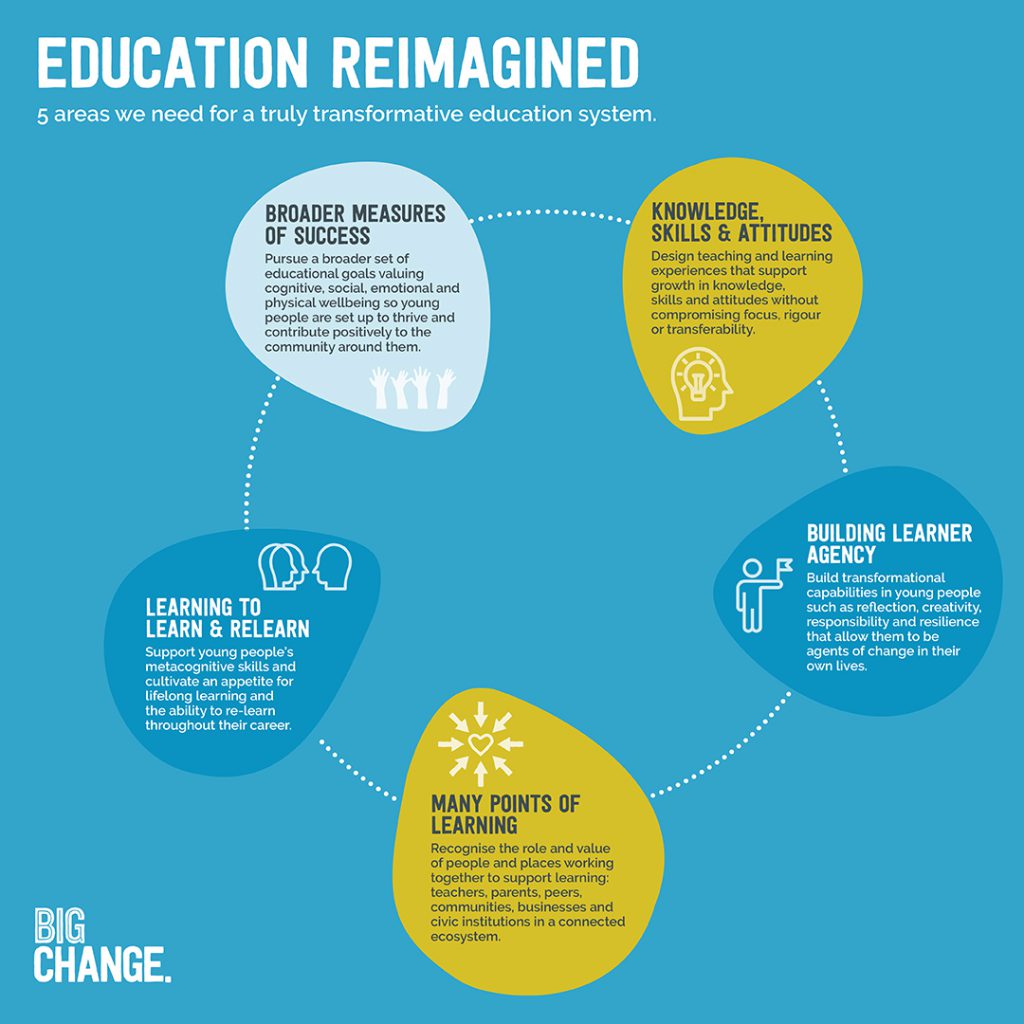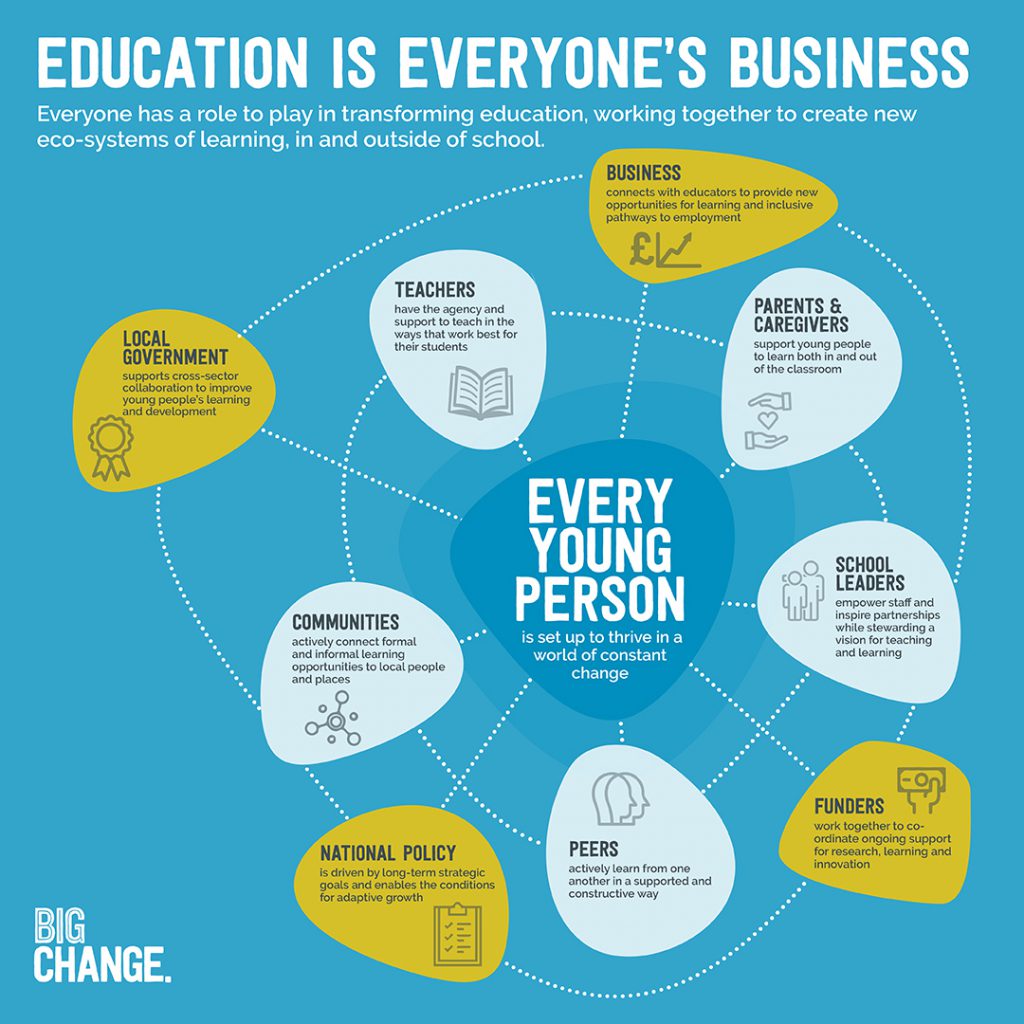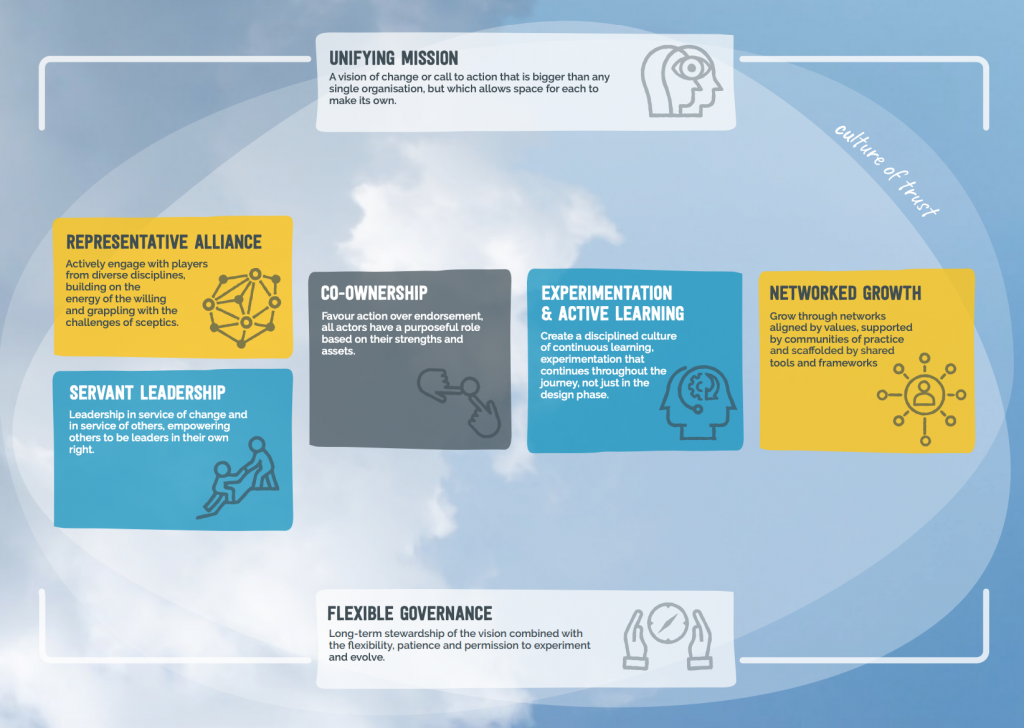Today we launch the Reimagining Education Together report. Over the last year we have had the privilege to speak to teachers, parents, business leaders, academics, students and NGOs about projects and schools that are changing the lives of students from around the world and what that means for the future of education. We learned a lot about what ‘big change’ means and how it happens.
Here are five key lessons we’ve taken away:
- When the world is changing, education needs to change too.
We live in an interconnected, rapidly changing world and education needs to reflect that. Employers increasingly ask for ‘essential skills’ such as communication and collaborative problem solving and this trend is only going to continue. Massive economic bodies like OECD and WEF have highlighted the need for humans to develop the skills that machines don’t have in the coming years. Pioneers like Dream a Dream are tackling this head on, working with young people from vulnerable backgrounds in Bangalore and Delhi to teach life skills from communication to empathy to resilience.
- Ordinary people want education to change.
Our research showed that teachers, parents and students believe that school in England is focused on preparing young people for exams, but they actually wish it had broader aims. Parents and students highlighted their desire to learn skills for work, life skills and better communication skills. 87% of teachers want to make a positive difference to society. These desires match pretty closely to the kind of education championed by the expert organisations we spoke to.

- Change isn’t someone else’s problem.
If we want broader education outcomes then everyone needs to think about their role in helping that to happen. When we say in the report that education is everyone’s business, we mean that each of us needs to use the resources we each have available to help. For example if a business wants employees with better problem-solving skills, then how can they connect with schools to help that happen? We saw great initiatives in Doncaster and Atlanta helping this kind of connection.
We can and we should support schools and teachers to work with communities to make change, but at a time when teachers are leaving the profession due to overwork and schools are shutting early due to budget cuts, we can’t ask schools to bear full responsibility for every aspect of our children’s learning and development. We have to get involved.

- Change can come from anywhere.
Our pioneer stories show that the process of educational change can be initiated by anyone with a vision and a willingness to work with others. We spoke to teachers creating design tools and a community to help other educators become agents of change in their schools, parents leading national campaigns to challenge standardised testing, students in Sub-Saharan Africa building alumni networks to support female education, and even governments that were brave enough to take a long-term view of education and start a national conversation about what learning means to their society.
- Change is a human story
Perhaps the biggest message we took away from this process is that change is human. It starts with bringing people together, creating relationships where they didn’t exist before, building trust, sharing stories, working together and keeping going when we get it wrong.
What we mean when we talk about changing systems, is changing people, their minds and behaviours, starting with ourselves.

